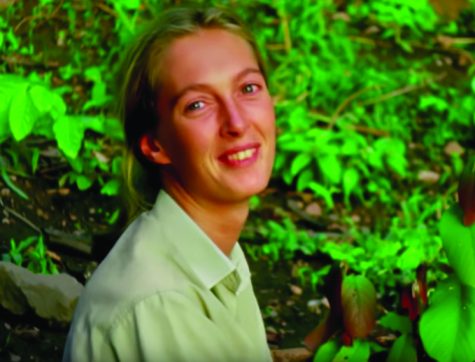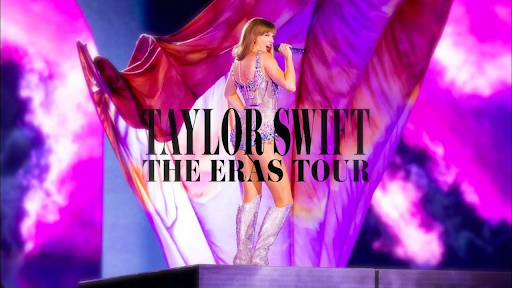
Jane Goodall as herself in the 2017 documentary “Jane.”
Earth Day has continuously been a day that highlights the beauty that biodiversity offers and the current anthropogenic problems that face our environment. Established in the spring of 1970 by Senator Gaylord Nelson, Earth Day’s purpose has been to bring these issues to national attention –– a goal accomplished within the first year, as the turnout to Earth Day led to the creation of the Environmental Protection Agency (EPA) in December 1970.
Today, Earth Day is more important than ever. In the United States alone, more than seven out of 10 Americans believe that climate change is personally important to them, according to a poll conducted by Yale and George Mason University. However, reported in the same poll, almost 70 percent of Americans said that they would not pay $10 a month to help cool the warming planet. In order to reach and convince more people about the importance of required environmental and consumption changes, education is necessary.
With that, here are five films geared toward the environment, focusing on climate change, women in STEM, the agricultural/livestock industry and a fictional story of animal conservation.
“Before the Flood”
Dir. by Fisher Stevens
National Geographic’s “Before the Flood” follows actor and UN Messenger of Peace, Leonardo DiCaprio, as he travels around the world to speak with scientists, activists and world leaders –– some of which include the likes of Ban Ki-moon, Elon Musk, Pope Francis, Barack Obama and Sunita Narain –– to see and discuss the effects of climate change on our current and future environment. Offering a comprehensive overlook of a broad issue such as climate change caused by CO2 emissions, “Before the Flood,” which is available on Netflix, is a great place to start for anyone who wishes to better understand the stories behind the statistics. However, for more detailed coverage less focused on the host himself and to provide more personal solutions, it might be advisable to look elsewhere.
“Jane”
Dir. by Brett Morgen
A childhood icon of my own, Dame Jane Goodall, DBE, is an English primatologist, ethologist and anthropologist who, after living amongst the chimpanzees in the Gombe National Park of Tanzania, discovered in 1960 that chimps could make and use tools. This necessitated the redefinition of “intelligence” and “human,” two terms long conflated with tool-making skills. “Jane,” released by National Geographic in 2017 and available on Hulu, utilizes rediscovered footage from Dr. Goodall’s early research in Gombe to weave a personal narrative of her journey of exploration in the jungle and in her own personal life as well. While the focus has always been on Dr. Goodall –– despite her misgivings –– the documentary also provides crucial insight to behavioral studies of chimps and the contributions of a young woman to the STEM field.
“Food, Inc.”
Dir. by Robert Kenner
While I am not a vegetarian or vegan myself, I do believe it is important to look at how we consume food when we analyze our ecological footprint. “Food, Inc.” takes a different approach to this question; while it does focus on the inhumane nature of animal production industry, it also breaks down corporate farming in the United States. Monopolies such as Monsanto Inc., who have, as described by the film, “seed police” that track the use of their genetically-modified seeds. Corporations use the labor of undocumented immigrants and the threat of ICE hand-in-hand, even at one point calling the agency on their own workers. “Food, Inc.” provides an important look into the capitalism driving the industrial agricultural and livestock machines.
“Born Free”
Dir. by James Hill and Tom McGowan
“Born Free,” a fictional film released in 1966, was my first introduction to conservation efforts, reinforced on its multiple check-outs from the Bar Harbor Public Library. Based on the true story of George and Joy Adamson (portrayed by Bill Travers and Virginia McKenna) and their care for three orphaned lion cubs in a national park in Kenya, the film offers a different way to view relationships between animals and humans and takes a strong stance on poaching and animals in captivity. Fair warning: John Barry’s song “Born Free,” which defines the film, will get stuck in your head, for better or worse.









